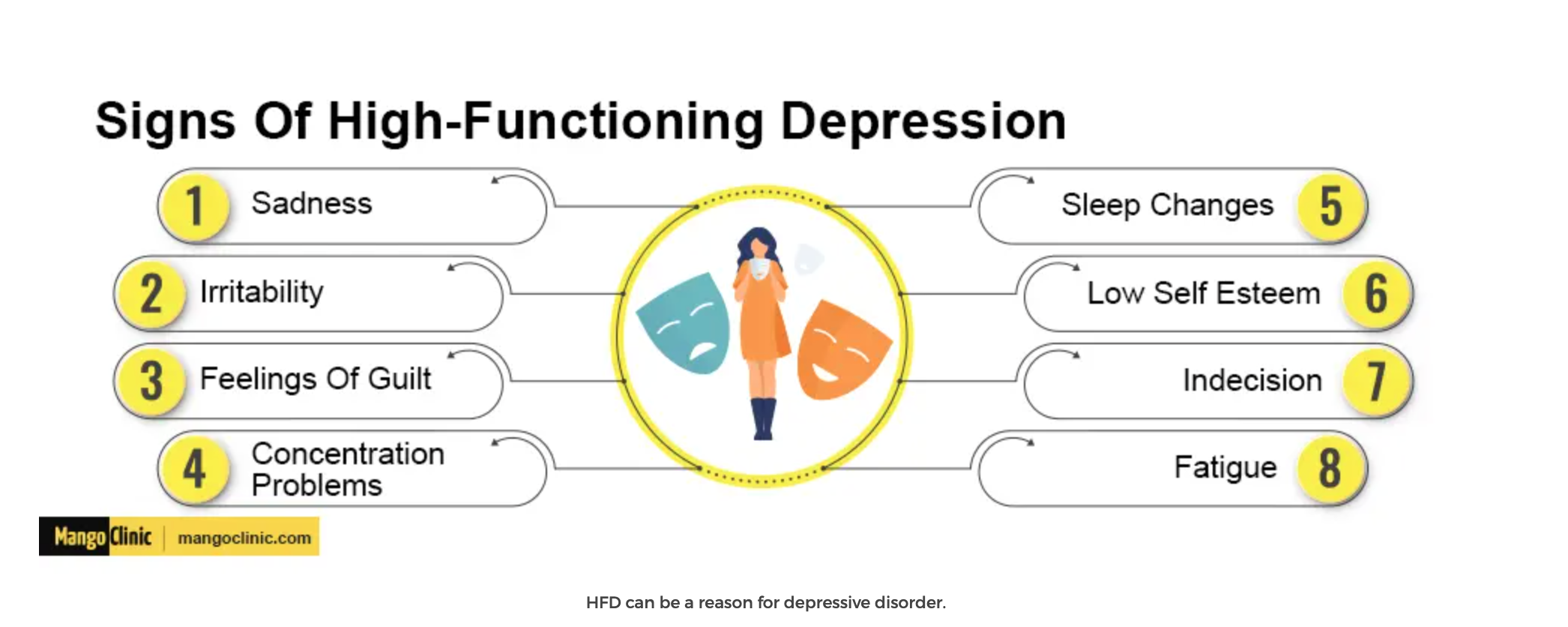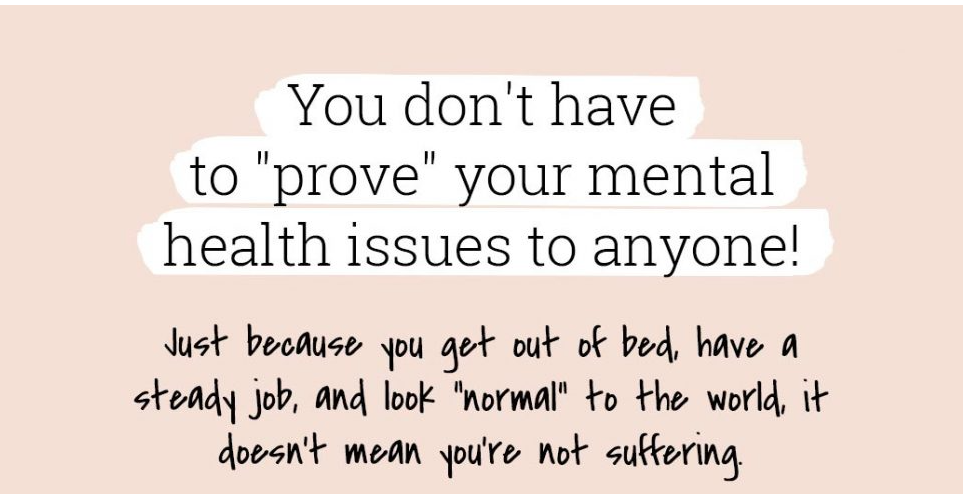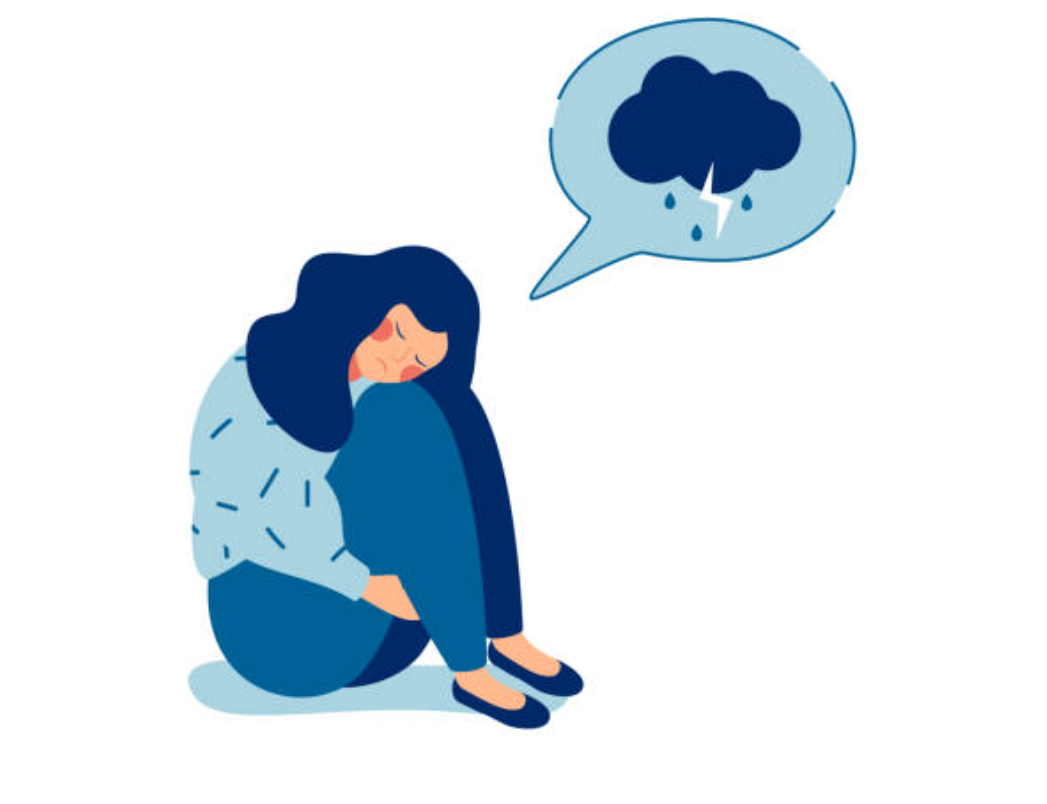High Functioning Depression: What It Is & How to Cope
Source: Stylist
Imagine this: You go to school. Go to work. Get all of your tasks done, all while still having the time and energy to go out with friends and be social. Sounds like a perfect lifestyle balance—right?
To an outside person, you may seem happy and put together, but sometimes everything is not what it seems. In reality, you may find yourself overly tired or even “lazy” most days and feel as like getting your task done is a chore. Well, these are symptoms of High Functioning Depression.
What is High Functioning Depression?
High Functioning Depression, otherwise known as Persistent Depressive Disorder, is different from Major Depressive Disorder. Bridges to Recovery says that “the signs and symptoms of high-functioning depression are similar to those caused by major depression but are less severe. They may include changes in eating and sleeping habits, low self-esteem, fatigue, hopelessness, and difficulty concentrating.”
Source: Well San Fransisco
It is not easily detected and is considered less debilitating, but the truth is, many people suffer from High Functioning Depression. Medical News Today reveals that “the World Health Organization (WHO), more than 264 million people of all ages experience depression worldwide.” But, since the symptoms are considered milder by medical professionals, those with High Functioning Depression often end up without a diagnosis for their emotions. This has become a problem because those who suffer continue on with life as normal and downplay the condition.
How can you spot High Functioning Depression?
Some symptoms of High Functioning Depression include a decreased appetite or overeating, insomnia or oversleeping, lack of energy, lowered self-esteem, feeling sad and hopeless, and lack of ability to make firm decisions. If you feel like any of these symptoms apply to you, we suggest that you seek further conciliation to get a proper diagnosis.
Source: Magno Clinic
How to cope with high functioning depression.
The first step to deal with High Functioning Depression is to admit that you aren’t okay—and that that’s ok. We can all relate to telling those around us that we’re “fine” even when we know that is not true. In the case of High Functioning Depression and other feelings of immense sadness, it is important, to be honest with yourself and know that you aren’t alone.
Another piece of advice would be to seek out a therapist or other medical professionals. There is absolutely nothing wrong with needing help, and it is an important step to take when recovering and living with mental illness.
Though it can be hard to bring yourself to exercise while in this state, it is very important to keep your body active. When working out, your body releases endorphins which promote a happier and healthier mind.
Source: Well San Fransisco
Choosing Therapy advises that those suffering from High Functioning Depression should “Set daily goals, preferably simple ones that are easily reached, in order to boost self-confidence and sense of accomplishment.”
There are many other ways to cope, so if none of these work for you, here is a list of a few more.
There is one thing you should always remember: check in on your friends. Whether they express their depressive thoughts on the surface or not, you never know what goes on behind closed doors. Just because their life may look pretty and sparkly on the outside, does not mean they aren’t dealing with things on the inside.
Source: iStock
If you or someone you know is experiencing any of these symptoms, we strongly advise you to seek out a medical professional. High Functioning Depression and other forms of depression are not to be taken lightly.
If you or a loved one is having suicidal thoughts, please call the number below. Remember that you are never alone.
National Suicide Prevention Lifeline:
800-273-8255





